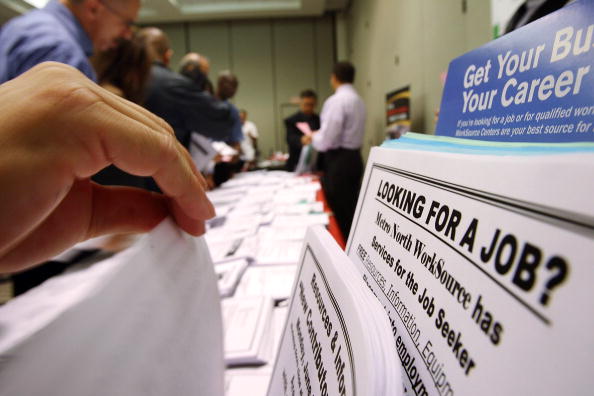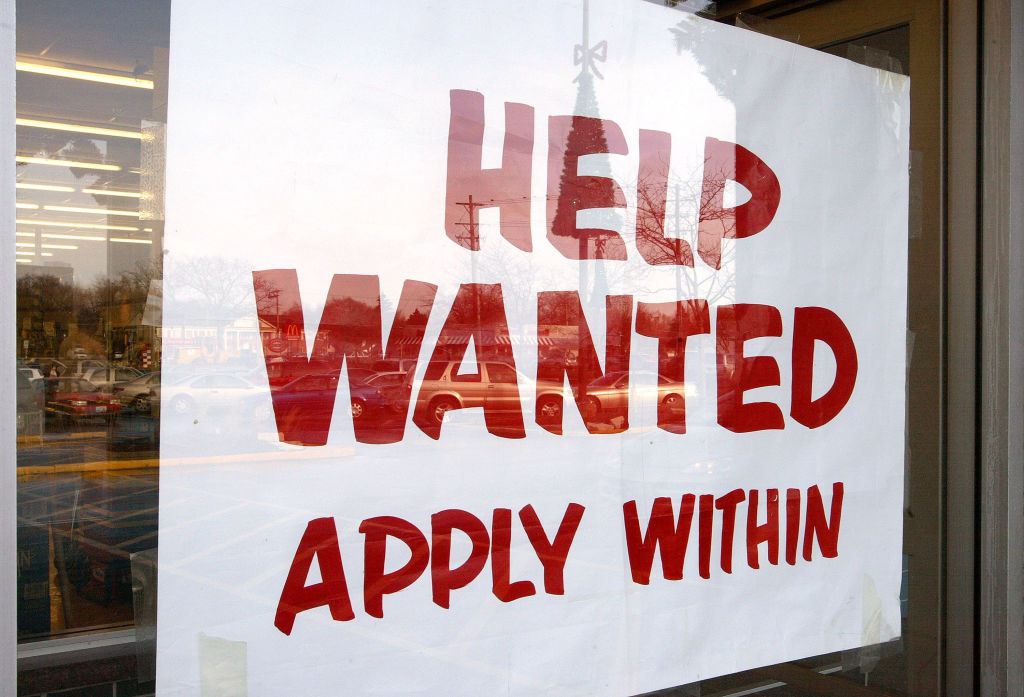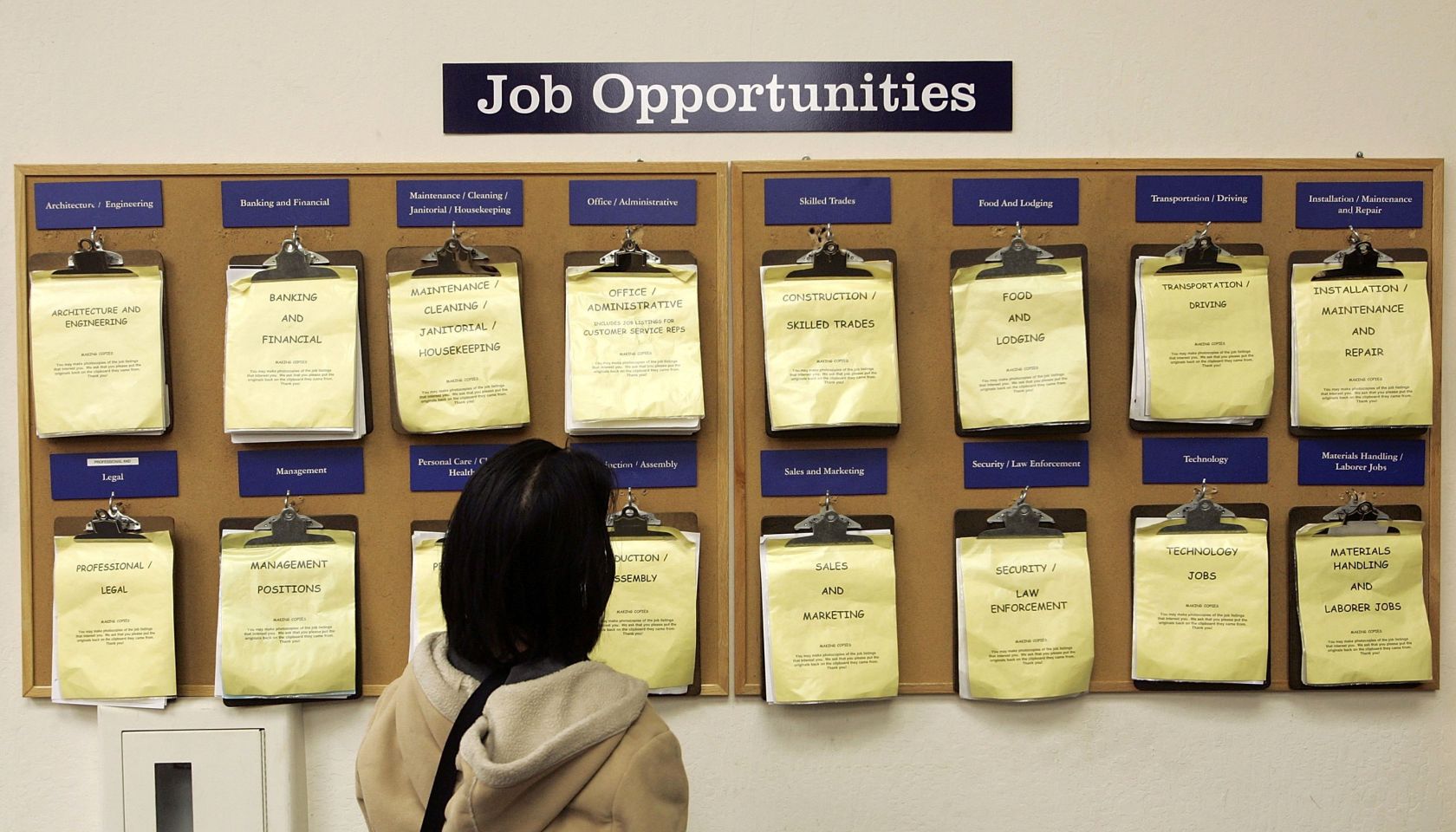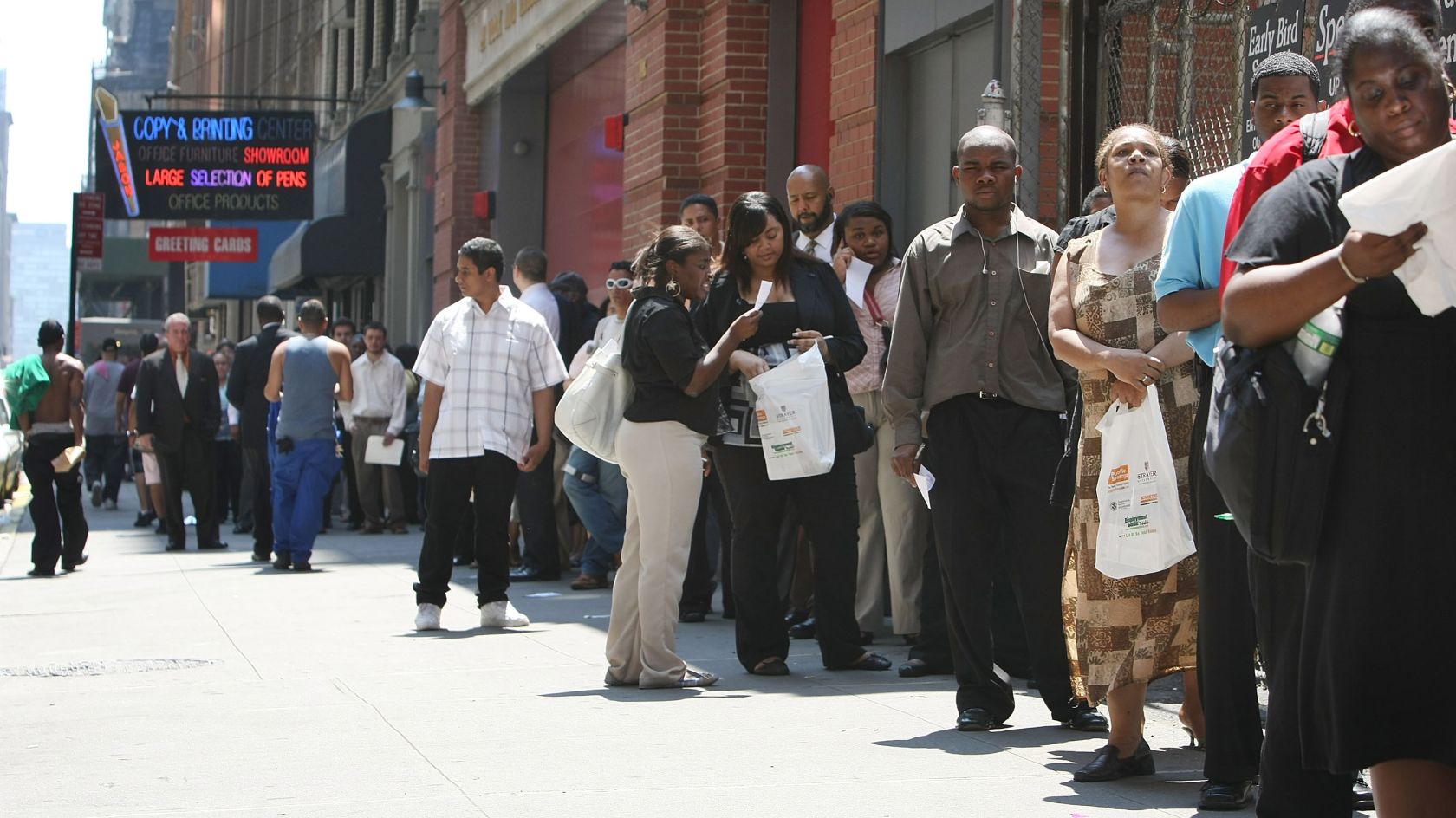jobs report
The Black unemployment rate surged in November 2024, particularly for Black women whose rate rose by more than a full percent, according to the latest jobs report.
Unlike other groups, the Black unemployment rate grew last month.
One month after setting a record low, the Black unemployment rate in the U.S. continued its steady decline to new historic proportions, April's jobs report revealed.
While in recent years the trajectory for graduating Black college students in the job market hadn’t been promising, the numbers are telling a different story in 2022.
In yet another indication that Black America was being left behind by the country's economic recovery, the jobs report for August showed that the Black unemployment last month rate surged while joblessness for every other group fell.
The July jobs report is being hailed as "strong" in part because the Black unemployment rate dropped by a full percentage point, but economists said exponentially more Black workers "left the workplace" than those who were actually hired last month.
Black women saw their rate of unemployment in January inch up by a small but meaningful increment as they "are still being left behind by the recovery," according to a recent report on the economy.
The good news of the jobless rate dropping did not extend to Black workers as new data shows their unemployment levels ticked upward last month.
According to the December jobs report, the Black unemployment rate has inflated while wages for all Americans have not.
Despite the gaudy jobless numbers in November's jobs report, an apparent lack of so-called “good jobs” has resulted in a surge of hiring to fill low-wage positions, which negatively affects the Black unemployment rate.
While the Black unemployment rate has been at an all-time low for two consecutive months, a closer look at the latest jobs report showed what appeared to be fluctuating stability for African Americans along gender lines.
The national Black unemployment rate has dropped to a record low, according to the newest jobs report.



















